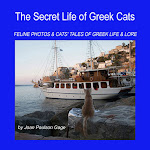I imagine by now you’ve heard about the kerfuffle over the
article in the October Atlantic by Ezekiel J. Emanuel titled “Why
I Hope to Die at 75”.
Ezekiel Emanuel is a very distinguished scientist. He is director of the Clinical Bioethics
Department at the U.S. National Institutes of Health and heads the Department
of Medical Ethics & Health Policy at the University of Pennsylvania. He was a primary architect of Obamacare. And he is 57 years old.
Needless to say, his 5,000-word piece evoked a lot of
debate, although everyone agreed he makes some important and startling
points. They are his reasons for saying
that he hopes to die at 75 and that after he turns 65, he plans to discontinue
all his health care—no flu shots, colonoscopies, surgery, pacemakers or heart
bypasses. No cancer treatments or antibiotics.
He quotes Sir William Osler, who
said in a classic turn-of-the-century medical textbook, “Pneumonia may well be
called the friend of the aged,” because
it kills you quickly and relatively painlessly.
Emanuel cites, scornfully, what he calls the “American
immortal”, who is “obsessed with exercising, doing mental puzzles, consuming
various juice and protein concoctions, sticking to strict diets and popping
vitamins and supplements, all in a valiant effort to cheat death and prolong
life as long as possible.” He thinks this “manic desperation to endlessly
extend life is misguided and potentially destructive.”
He also includes a graph to show that creativity “peaks
about 20 years into the career, at about age 40 or 45, and then enters a slow,
age-related decline.” He writes, “The fact is that by age 75,
creativity, originality and productivity are pretty much gone for the vast,
vast majority of us.”
Furthermore, “A third of people 85 and older [have] Alzheimer’s.”
Selfish people who insist on living beyond 75 are burdening
their children with the “wrong kind of memories.” [If we live too long] “We are no longer
remembered as vibrant and engaged but as feeble, ineffectual, even pathetic.”
Mr. Emanuel points out that more than half of us oldsters
have functional limitations. (The test of whether you’re functioning properly
is this: you can walk a quarter of a mile, climb 10 stairs, stand or sit for
two hours; and stand up, bend, or kneel without using special equipment.)
He points out that his own father, now in his eighties, had
a heart attack and bypass “just shy of his 77th birthday” and has
been slowing down ever since. “Today he can swim, read the newspaper, needle
his kids on the phone and still live with my mother in their own house, But
everything seems sluggish….no one would say he is living a vibrant life.”
Well, Mr Emanuel, I’m about to turn 74, and I want to tell
you that I do not hope to die at 75. I
submit that my quality of life in my late sixties and early seventies is better
than at any previous time in my life.
During high school I was miserable.
In college and grad school I was exhausted, overworked and sleep-deprived. During my thirties and forties I was juggling
pregnancies, raising three kids, trying to make a career in journalism,
housekeeping—the usual multitasking monster.
Today, every morning, I get up, get myself a cup of coffee
and as I settle in to read three newspapers, I breathe a silent prayer of
thanks that I don’t have to get up at six a.m., prepare lunches, don
office-worthy clothes, push into an over-crowded subway and arrive at the
office at 8 a.m.
Here are some of the things I’ve done since turning 65 (most
of them since turning 70):
--I went back to my original love, painting, signed up for
classes at the local museum, have exhibited and sold art in several shows, and
decorated three restaurants with my paintings or photographs.
--I started a blog, “A Rolling Crone” and have written 390
posts in the past six years.
--I’ve traveled to India for a three-day Hindu wedding,
visited the Taj Mahal and, in Varanasi, drifted at dawn in a small boat on the Ganges,
watching the laughing yogis doing their morning exercises and the cremation
ghats burning bodies on shore.
---I’ve visited the El Rosario Butterfly Sanctuary in
Michoachan, Mexico, where millions of monarch butterflies spend the winter
clustered in the fir trees. This involved climbing a mountainside at such high
altitude that I had to stop every 20 yards or so to get my breath, but it was
well worth it.
---I’ve visited a beach in Nicaragua at night, lantern in
hand, watching hundreds of sea turtle babies emerge from the sand, and helped
them in their journey toward the ocean, where they would swim to Africa, then
return to this beach one day to lay their eggs.
--and I’ve celebrated Day of the Dead in Oaxaca, Mexico
(twice)
--In 2009 I participated in my 50th high school reunion
in Edina, Minnesota, helped gather everyone’s biography for the Reunion Book, and since then have explored Manhattan with
high-school friends during several “mini-reunions”—most recently three weeks
ago when we walked north from the bottom of Central Park, stopped for lunch by
the boat pond, then visited exhibits in the Metropolitan Museum of Art , and
wound up eating dinner in the Great Hall Balcony Bar accompanied by live
classical music.
---The most life-enhancing thing I’ve done in my 70’s is to
meet my newborn first grandchild in August of 2011. Since then, I’ve traveled with her and her parents
to Nicaragua, Greece, Miami and Manhattan, watching her grow into her own
person and sharing with her the places, songs, games and books I loved 70 years
ago , when I was her age. (As every grandparent knows, rearing your own kids is
wonderful, but you never have time or energy to watch and wonder at their
development; you’re just too tired and worried about doing things right. That’s why being a grandparent is so much
more fun.)
My mother died at the age of 74 of cardiomyopathy after a
long, slow decline to the point where she was too weak to open the door to her
bedroom and weighed about 85 pounds. But
she didn’t want to die at that time.
My father died at 80 after about six years of suffering from
Parkinson’s Disease and dementia—perhaps Alzheimer’s. He spent the last year or two unable to
communicate, curled in a fetal position. That’s why I say that-- if and when I’m
diagnosed with Alzheimer’s-- I intend to investigate and schedule an illegal
physician-assisted death.
(Mr. Emanuel writes, “Since the 1990s I have actively
opposed legalizing euthanasia and physician-assisted suicide.”),
But for the moment, as I prepare for my 74th
birthday, I still take Pilates classes, wear my “Fitbit” to measure my daily
activity, and manage to rack up more than 10,000 steps a day. I still can sprawl on the floor to play with
my granddaughter or lift her into her stroller. I still can drive the 180 miles
between our Massachusetts farmhouse and her Manhattan apartment, while
listening to CDs in an effort to learn Spanish—which she speaks to her other
grandma. I can still do the crossword in
the Times or read a menu without wearing
glasses.
But I‘ll probably need them 18 years from now, Mr. Emanuel,
when I’m scanning The New York Times
for your obituary.











No comments:
Post a Comment